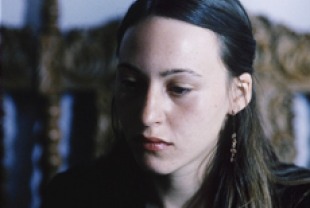"I know war as few other men now living know it, and nothing to me is more revolting. I have long advocated its complete abolition, as its very destructiveness on both friend and foe has rendered it useless as a method for settling international disputes," World War II General Douglas Macarthur stated, yet not even his military peers would listen. In the 3,400 years of recorded human history, 3,166 have been years of war and the remaining 234 were years of preparing for war.
Since his debut in 1954, Jean-Luc Godard has made 90 short and feature films. In this ambitious and philosophical work, he turns his lens on the nightmare of war. Taking a cue from Dante, the inimitable French filmmaker has divided Notre Musique into three parts: Hell, Purgatory, and Heaven. He is convinced that truth is to be found in the merging of opposites. The music of death and life, dark and light, good and bad, criminals and victims, shot and reverse shot is the music of our time.
"Hell" showcases documentary images of war from different time periods and images from Hollywood movies, including Apocalypse Now, Zulu. and Kiss Me Deadly. A woman narrator laments the savagery of wars between "men armed for extermination." With some discordant music we move on to "Purgatory" where Godard, playing himself, arrives in Sarajevo to give a lecture for European Literary Encounters. While riding in a car, the legendary filmmaker is asked why humane people don't create revolutions and he declares, "They start libraries." In another car on the way to the conference, a guest states: "Violence leaves a permanent scar. To see your fellow man turn on you leaves a feeling of deep-rooted horror." Truer words were never spoken.
Judith Lerner (Sarah Adler), a Jewish journalist, tries to set up an interview with Olivier Naville (Simon Eine), a French ambassador who has a link to her past unbeknownst to him. Then she talks to Mahmoud Darwich, a Palestinian poet, who notes that the Israelis have made his people famous by attacking them so fiercely. Even so, the poet laments that the world still does not care what happens to the lowly Palestinians. In his lecture, Godard notes that truth has two faces, citing several examples. But the interest in the room is on other things. A student asks, "Can the new digital cameras save cinema?" Godard rolls his eyes and says nothing.
Olga (Nade Dieu), a Jewish Israeli of Russian descent, visits the Mostar Bridge in the bombed-out city and talks to the architect who is working on its rebuilding. She doesn't share his hope for a brighter future. Still, when some Native Americans from the conference leave in a truck, she sees them in her mind's eye dressed in their tribal outfits as figures of great power and authority. Olga meets with her uncle and shares with him her intention to commit suicide, explaining: "There will be total liberty when it's the same to live or die." Back home, Godard receives a call and learns that she was shot by marksmen in a cinema in Jerusalem after threatening to blow herself up.
In the final segment, "Heaven," Olga walks through an idyllic green forest where individuals are reading, playing, and relaxing. She shares an apple with a soldier near the water's edge. Meanwhile, this paradise is guarded by rifle-bearing U.S. Marines. Only a Frenchman would have the courage to depict the arrogance of America as reaching all the way to Heaven as though it were just another place to be occupied by our troops.
Screened at the 42nd New York Film Festival October 2004.
